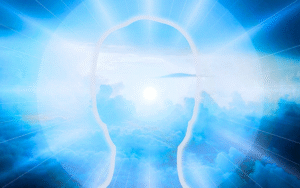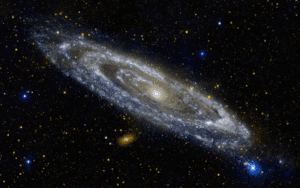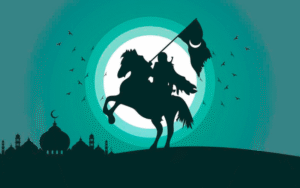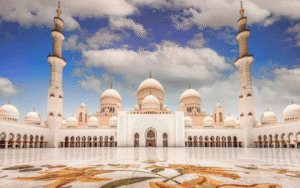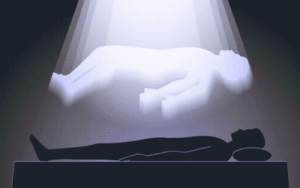Sirat Bridge in Islam: What the Quran and Hadith Say
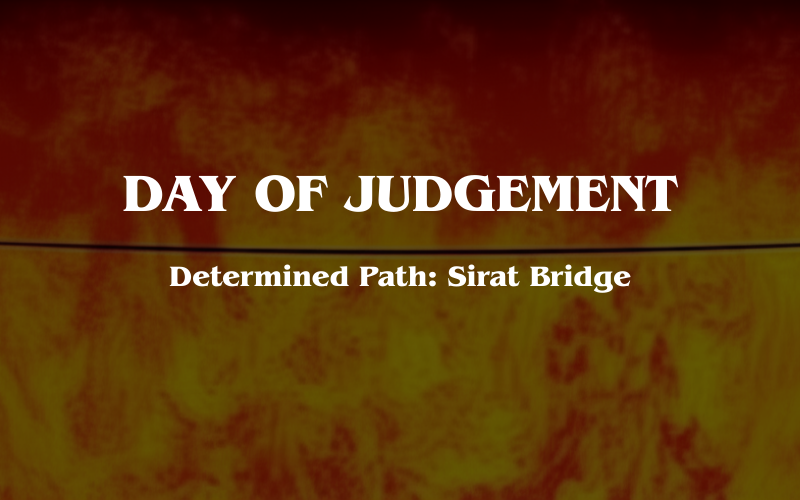
Belief in the Sirat bridge (Pul Sirat) is an inseparable part of our faith (Iman) in the Hereafter (Akhirah). Allah will establish this inevitable bridge over Hell (Jahannam). Consequently, every soul must cross it. Both our holy book, the Quran, and the hadith of our beloved Prophet (ﷺ) clearly describe this path. Indeed, they warn us about the consequences of our worldly deeds.
This article delves into this crucial aspect of our faith, drawing from the Quran and Hadith to offer a clearer understanding.
What is the Sirat Bridge: Its Origin and Description
The Sirat bridge is a physical reality. Narrations describe its nature as truly terrifying. For instance, a lengthy hadith from Abu Sa’id al-Khudri (RA) details its formidable nature:
“…Then the bridge will be laid across Hell. …I asked, ‘O Messenger of Allah (ﷺ), what is the bridge?’ He said, ‘It is a slippery and precarious path with clamps and hooks…’. The narrator says, ‘I have heard that it is finer than a hair and sharper than the edge of a sword.'”
(Source: Sahih Muslim, The Book of Faith, Hadith 183)
This powerful hadith reminds us of the terrors of the Day of Resurrection and the difficult stages of judgment that await.
Its Purpose and Quranic Guidance
The primary purpose of As-Sirat is to uphold absolute justice. Furthermore, it will definitively separate the believers (Mu’minun) from the disbelievers (Kuffar) and hypocrites (Munafiqun).
While the word ‘As-Sirat’ does not appear explicitly in the Quran, verses 71-72 of Surah Maryam make its reality clear. Allah (SWT) says:
وَإِن مِّنكُمْ إِلَّا وَارِدُهَا ۚ كَانَ عَلَىٰ رَبِّكَ حَتْمًا مَّقْضِيًّا ثُمَّ نُنَجِّي الَّذِينَ اتَّقَوا وَّنَذَرُ الظَّالِمِينَ فِيهَا جِثِيًّا
“There is none of you except that he will pass over it. This is upon your Lord an inevitability decreed. Then We will save those who feared Allah and leave the wrongdoers within it, fallen on their knees.”
(Source: Surah Maryam, 19:71-72)
The commentators of the Quran agree that this “passing over” refers to crossing the Sirat bridge, from which Allah will save His righteous and God-fearing servants.
The Experience of Crossing: A Glimpse from the Hadith
Ultimately, the experience of crossing As-Sirat will depend entirely on our deeds in this world (Dunya). Therefore, the better a person’s deeds, the faster their passage will be. In a hadith from Abu Hurayrah (RA), the Messenger of Allah (ﷺ) explained:
“Some will cross it in the blink of an eye, some like lightning, some like the wind, some like swift horses, and some like a regular rider. Some will be saved and delivered, some will be lacerated but will be freed, and some will be thrown into the fire of Hell.”
(Source: Sahih al-Bukhari 7439, Sahih Muslim 182)
On that day, the believers will have the ‘Noor’ (light) of their faith with them. This light will illuminate the dark path. In fact, our Salah (prayer) itself will become a light for us (Sahih Muslim, 223). In contrast, Allah will extinguish the light of the hypocrites and disbelievers. As a result, they will lose their way and fall into the abyss of Hell.
Deeds that Aid in Crossing As-Sirat
Certain deeds will greatly help us navigate this difficult path. Chief among them are:
- Sincere Iman and Taqwa: True faith free from Shirk (polytheism) and Taqwa (God-consciousness) is the greatest provision.
- Regular Salah (Prayer): Consistent prayer will serve as a guiding light.
- Charity (Sadaqah): Giving charity helps extinguish the wrath of Allah and protects one from calamity.
- Protecting the Rights of Others: We must refrain from injustice, as every right will be strictly accounted for on the Day of Judgment.
Conclusion: A Steadfast Pillar of Our Aqeedah
In conclusion, As-Sirat is a powerful pillar of our Aqeedah (creed). It is not a mere symbol; rather, it is an inevitable reality. This truth constantly reminds us of our ultimate accountability to Allah. The knowledge of this bridge inspires us to walk the path of righteousness, piety, and good deeds in our worldly lives. Ultimately, this is because Allah will determine a reward or punishment for every one of our deeds. This principle forms the core foundation of the Islamic way of life.
Frequently Asked Questions
What is the Sirat bridge (Pul Sirat)?
The Sirat bridge is an inevitable physical bridge that Allah will establish over Hell. Every soul must cross this bridge on the Day of Judgment.
What is the purpose of the Sirat bridge?
The primary purpose of the Sirat bridge is to uphold absolute justice and separate the believers from the disbelievers and hypocrites.
How will people cross the Sirat bridge?
The experience of crossing the bridge will depend on a person's deeds in this world. Some will cross in the blink of an eye, while others will be thrown into Hell. The faster a person's passage, the better their deeds.
What deeds will help a person cross the Sirat bridge?
Sincere faith (Iman), God-consciousness (Taqwa), regular prayer (Salah), and giving charity (Sadaqah) are among the deeds that will aid in crossing this difficult path.
